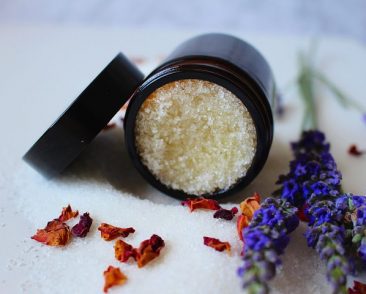Healthy living isn’t a few isolated choices here and there… it’s a lifestyle. The more frequently that we make informed, healthy decisions, the better that we ultimately feel. In turn, we are more likely to keep making healthy decisions, and so they become our defaults, ingrained into the lives we lead, no matter how old or young we are.
In every decade of our lives, we are faced with unique challenges and presented with different opportunities to live at our peak health. From establishing healthy sleep habits to buying organic produce, making healthy choices is a lifelong endeavor.
[What’s the difference between organic and all-natural?]
With that in mind, here’s a roadmap to living your best list at every age.
In your 20s
- Establish good habits. Many of us experience our first dose of true freedom in our twenties as we establish ourselves as independent adults. The habits that we adopt in our early years, from sleep and study habits to exercise routines and food choices will impact our state of health for years to come.
- Read nutrition labels. When we initially become responsible for purchasing our own food, we tend to become more aware of what we are consuming. Which loaf of bread do we enjoy eating? Is cost the only factor? What’s really in the bread that we typically eat? Using this time to become more aware of the ingredients in the food that you purchase will have a positive long-term impact on your health.
In your 30s
- Trade booze for tea. While it might feel like a glass of wine or two after a busy day of work (and maybe after the kids go to bed) is well-deserved, drinking alcohol during the week can leave you dragging. Establishing a habit like drinking tea, instead, will positively influence your sleep habits, weight, and mood.
- Get your sweat on. As we become more established in our careers in our thirties, we are likely spending more time at our desks. Because so many of us have sedentary jobs, it’s crucial to get moving. Exercise can burn calories and build muscle, both improving our mood and reducing the risk of disease.
In your 40s
- Keep moving. In your forties as your metabolism increasingly slows down, it’s more important than ever to keep exercising and avoid excess pounds. The less that we move, the less that we want to move. The more that we move, the more that we want to move. For example, if we never go to the gym, it might seem impossibly hard to get there. If we always go to the gym, it’s a matter of routine and might even become something that we even enjoy.
- Read more. Keeping your memory sharp is crucial in your forties as it will prepare you to stay sharp in all the decades to come. Best of all, as we age reading will not only enhance memory, it can reduce stress, enhance decision-making, and improve sleep.
In your 50s
- Prioritize friends. Whether you have kids or not, life changes big time in your fifties. Your kids may be leaving the nest, your parents need more help, you might be seriously considering retirement, and family members and friends may have started to develop age-related health conditions. Although you don’t have the worries of your youth, you are still pulled in different directions. Having a dependable friend group can help you to more thoughtfully and enthusiastically approach your next fifty years.
- Keep muscle mass. Bone density inevitably decreases with age, as does muscle mass. Called sarcopenia, a decline in skeletal muscle is a natural process. The more muscle that we lose, however, the greater the risk of falls and fall-related injuries. Engaging in a muscle building workout will help you to be less frail and at-risk in the years to come.
In your 60s
- Stretch and move. Stretching elongates muscles, increasing their range of motion and preventing injury. Dynamic stretching, like arm swings and shoulder circles, also increases blood flow and energy levels. Both help to keep aging bodies healthy and vibrant.
- Challenge your brain. Preventing cognitive decline in your seventies and eighties starts well before arriving at those ages. By engaging in intellectual stimulation in your sixties, you can stave off memory loss and keep our minds sharp.
In your 70s and beyond
- Stay social. Friendships help us not only to keep our minds sharp, but also to be resilient in the face of hardship. Keeping social connections with family and friends during this decade will help us to better weather the storms that we will inevitably face.
- Embrace aging. People who embrace aging tend to be happier. And, it’s no mystery why. As people age, they become better at tuning out negativity, including sadness and fear. Embracing aging helps people to both reflect joyfully on the milestones of their lives and be happy in the present.
The more informed that we are about our health at every age, the better the choices that we can make for ourselves. If we don’t make it a priority to keep muscle mass throughout our lives, for example, we won’t be able to magically get it back at eighty. If we don’t pay attention to food labels for years, we won’t be able to undo years of unhealthy eating. When it comes to aging, how healthfully you grow old will be determined by the choices that you make today.
Makeena is a free, easy to use loyalty app that earns you cash back and rewards after you purchase healthy & eco-friendly products at any retailer – even online. Learn more and download the app at Makeena.com.




